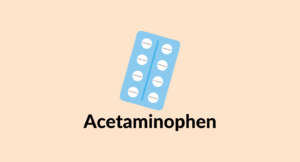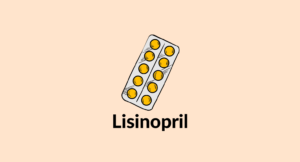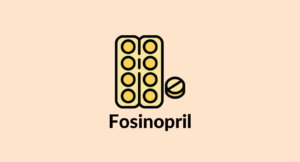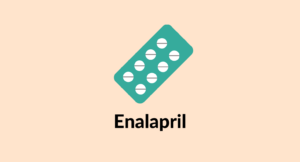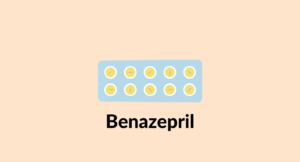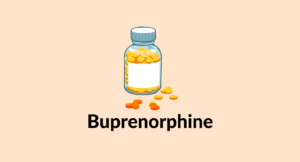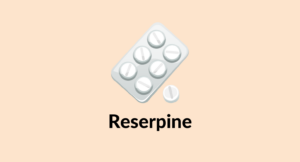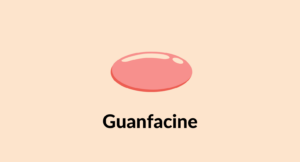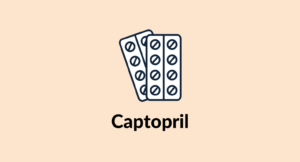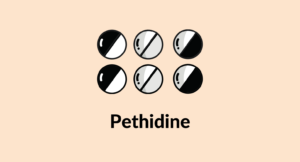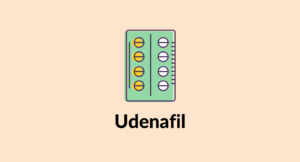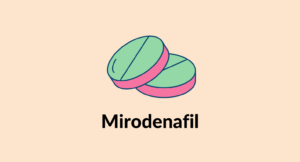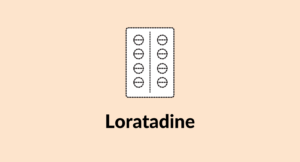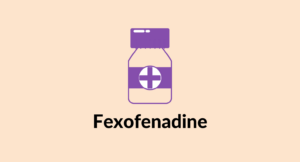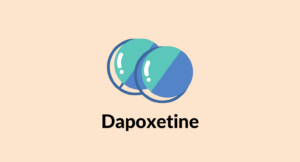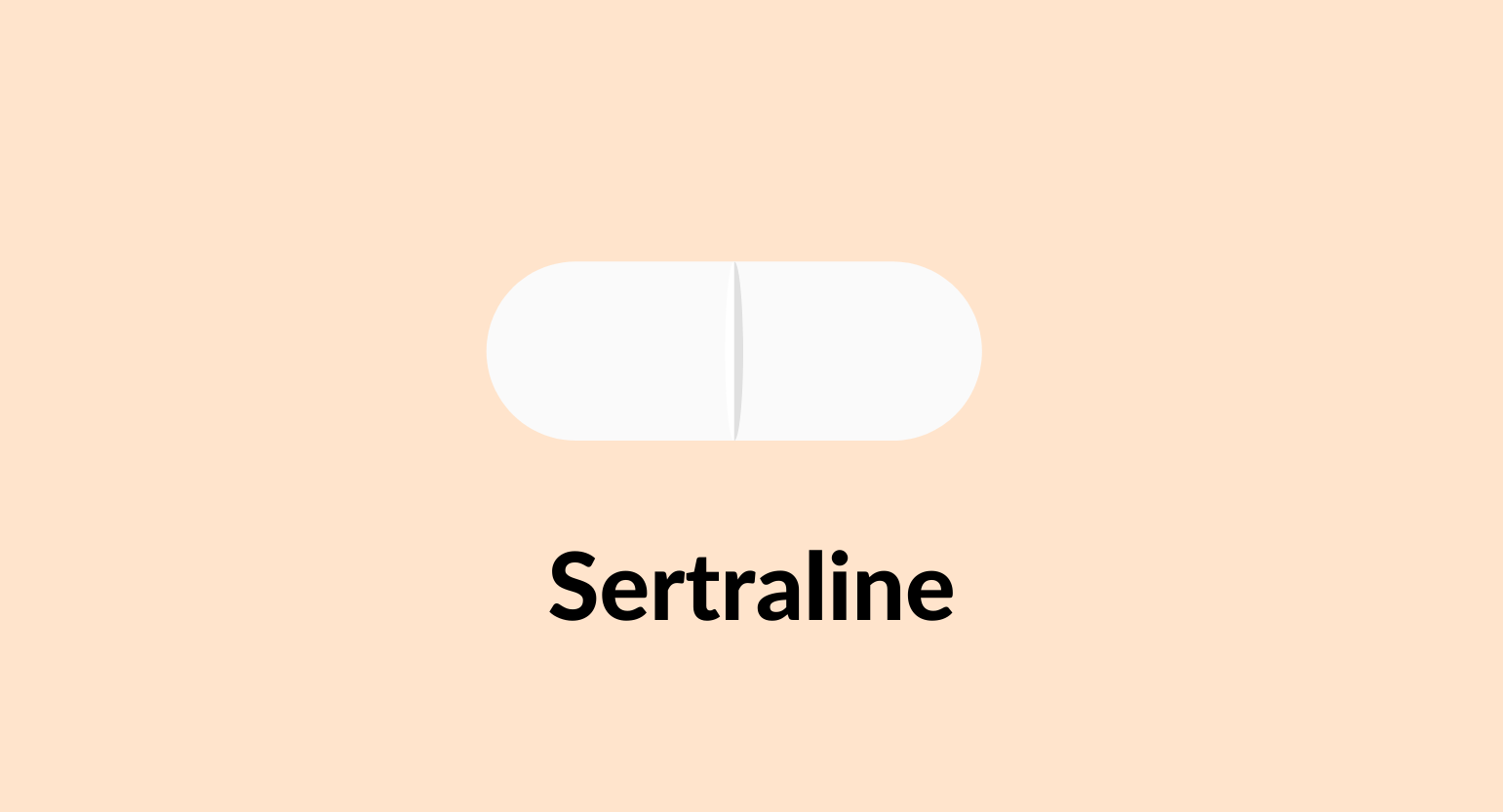
Does CBD Interact With Sertraline (Zoloft)?
Information on risks & possible interactions between CBD & sertraline.
Zoloft, or sertraline, is an antidepressant of the selective serotonin reuptake inhibitor (SSRI) class. It’s used in treating depression, panic attacks, obsessive-compulsive disorder, post-traumatic stress disorder, and premenstrual dysphoric disorder.
Cannabidiol or CBD has been gaining attention for its positive effects on anxiety, insomnia, inflammation, and depression.
Studies are still underway, though, and not much is known about the many other effects it could cause. CBD decreases particular enzymes’ abilities to metabolize Zoloft, so using them together could worsen the latter’s effects; however, the research is limited.
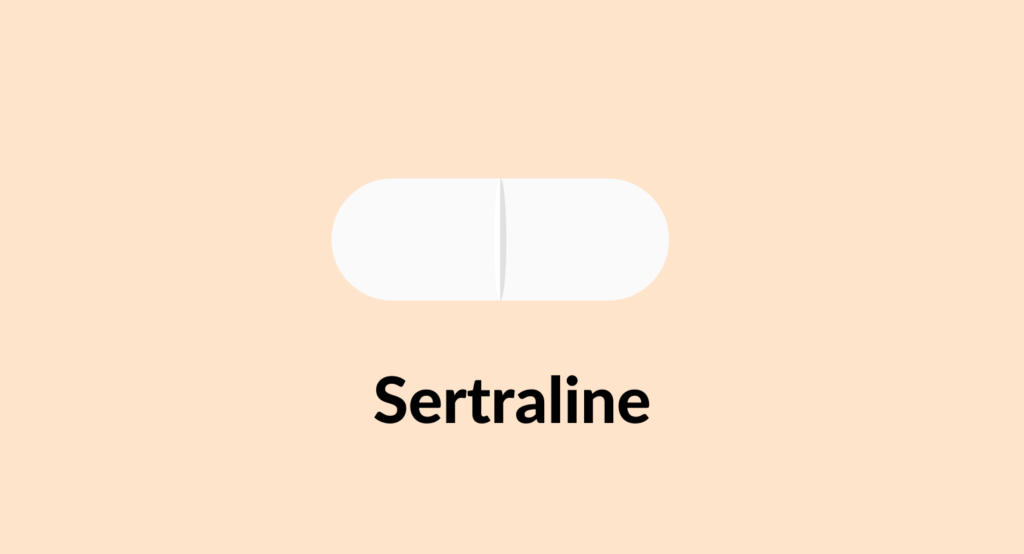
Does CBD Interact With Sertraline?
CBD may act as a competitive inhibitor for the same enzymes that metabolize sertraline (Zoloft). It can prevent the actions of cytochrome P450 enzymes, the same enzymes that metabolize sertraline; theoretically, using them together could decrease sertraline’s metabolization and, thus, increase its effects.
Because of this, sertraline might remain in the body for longer and could cause some side effects, ranging from simple ones to serious ones, such as serotonin syndrome.
However, there are not enough studies to determine exactly how much of an effect there will be by using sertraline and CBD together.
Other Names For Sertraline
Sertraline is sold under many different names. All share the same risk and potential interactions.
Other names for sertraline include:
- Zoloft
- Lustral
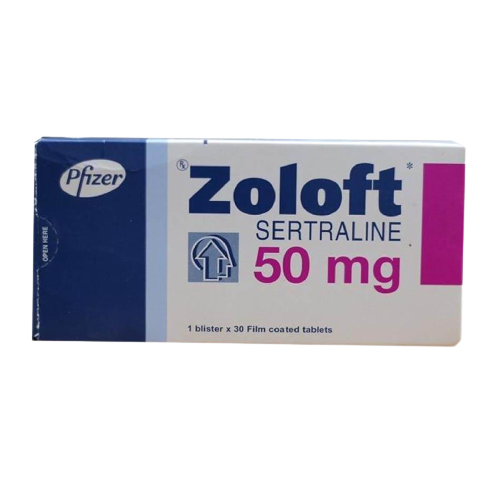
Similar Medications: CBD & SSRIs
Sertraline is classified as an SSRI (selective serotonin reuptake inhibitor). CBD and SSRIs all share similar risks for interaction and side effects.
Here’s a list of similar medications that share a similar level of risk when combined with CBD:
- Citalopram (Cipramil & Celexa)
- Dapoxetine (Priligy)
- Escitalopram (Cipralex & Lexapro)
- Fluoxetine (Prozac, Rapiflux, Sarafem, Selfemra & Oxactin)
- Fluvoxamine (Faverin)
- Paroxetine (Seroxat)
- Vortioxetine (Brintellix)
Is It Safe to Take CBD & Sertraline Together?
Because of CBD’s effects on the enzymes that metabolize sertraline (Zoloft), the latter drug is likely to be more potent than usual. This could lead to side effects and, at worst, may cause excessive serotonin levels, leading to symptoms similar to serotonin syndrome.
There’s not much information on the side effects of mixing these two drugs, but be on the safe side and exercise extreme caution.
If you want to mix CBD with sertraline (Zoloft), talk to your doctor first.
Is CBD a Viable Alternative to Sertraline?
Because CBD lacks extensive studies on its effectiveness, it cannot be considered a good alternative to sertraline (Zoloft). For now, it’s best to continue your regular dosage of Zoloft and talk to your doctor.
Under the advice of your medical practitioner, you may take both medications, but if you experience any abnormal symptoms, immediately stop CBD and contact your doctor.
What Is Sertraline (Zoloft)?
Sertraline hydrochloride was invented and marketed by Pfizer with the brand name Zoloft. It was approved for use by the FDA in 1999.
Sertraline is metabolized in the liver by several cytochrome enzymes, including CYP2B6, CYP2C19, CYP2C9, CYP3A4, and CYP2D6.
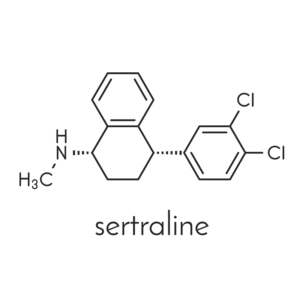
Setraline Specs:
| Drug Name | Sertraline |
| Trade Name | Zoloft |
| Other Names (other generics) | Lustral, Setrona, Zosert, Certrafine, Psyline, Sertima |
| Drug Classification | SSRI |
| CYP Metabolism | CYP2B6, CYP2C19, CYP2C9, CYP3A4, and CYP2D6 |
| Interaction With CBD | Metabolic Competitor |
| Risk of Interaction | Moderate; patient needs careful monitoring |
What Does Sertraline (Zoloft) Do?
Sertraline (Zoloft) is an SSRI and inhibits the reuptake of serotonin in the brain.
Zoloft is used in treating depression, panic attacks, obsessive-compulsive disorder, post-traumatic stress disorder, social anxiety disorder, and premenstrual dysphoric disorder. Zoloft can also improve mood and sleep and make the patient feel a better sense of well-being.
Depression is a mental disorder characterized by persistent low mood and lack of interest in activities that the person had previously enjoyed. In most patients with depression, serotonin levels are deficient.
Serotonin is the hormone that stabilizes mood, feelings of happiness, and well-being. Its level decreases in conditions such as depression.
Sertraline binds to the serotonin transporter (SERT) and inhibits the CNS neuronal retaking of serotonin (5HT). It prevents the fast metabolism of serotonin, thus allowing it to last longer in the brain, long enough for the person to function well again.
Side Effects of Sertraline
Like most other medications, sertraline (Zoloft) also has side effects. It affects the body as a whole and not just one system. These side effects usually happen on overdosing or incorrect dosing of the medication.
Side Effects In More Than 10% of Patients:
- Diarrhea
- Nausea
- Headache
- Insomnia
- Ejaculation disorder
- Dizziness
- Dry mouth
- Fatigue
- Drowsiness
Side Effects In Less Than 10% of Patients:
- Restlessness
- Anorexia
- Anxiety
- Constipation
- Paresthesia
- Impotence
- Sweating
- Malaise
- Vomiting
- Pain
Rare Side Effects:
- Asthenia
- Back pain
- Chest pain
- Hypoesthesia
- Increased appetite
- Myalgia
- Palpitations
- Tinnitus
- Weight gain
- Trismus
Possible Complications With Sertraline
There are some things about sertraline (Zoloft) that one should know before taking it. In some instances, Zoloft can be more dangerous. Here are a few situations:
1. Monoamine Oxidase Inhibitors (MAOI)
It can interact with MAOIs causing a decrease in serotonin metabolism, leading to an increased serotonin level, called Serotonin Syndrome. Its symptoms are high blood pressure, rapid heart rate, nausea, vomiting, and anxiety, and can be dangerous.
2. Disulfiram
The oral solution of sertraline contains alcohol, so using them together can cause flushing, headaches, nausea, and vomiting.
3. Liver & Kidney Impairment
Patients with liver and kidney problems cannot properly remove sertraline from the body; low doses under supervision are required.
4. Pregnancy
Using sertraline during pregnancy can cause congenital heart defects in the newborn.
5. Breastfeeding
Breastfeeding mothers with depression can use sertraline since its appearance in breast milk is minimal.
6. Patients Under 25
One of sertraline’s significant side effects is an increased risk of suicide in people under 25 years. This age group requires constant monitoring.
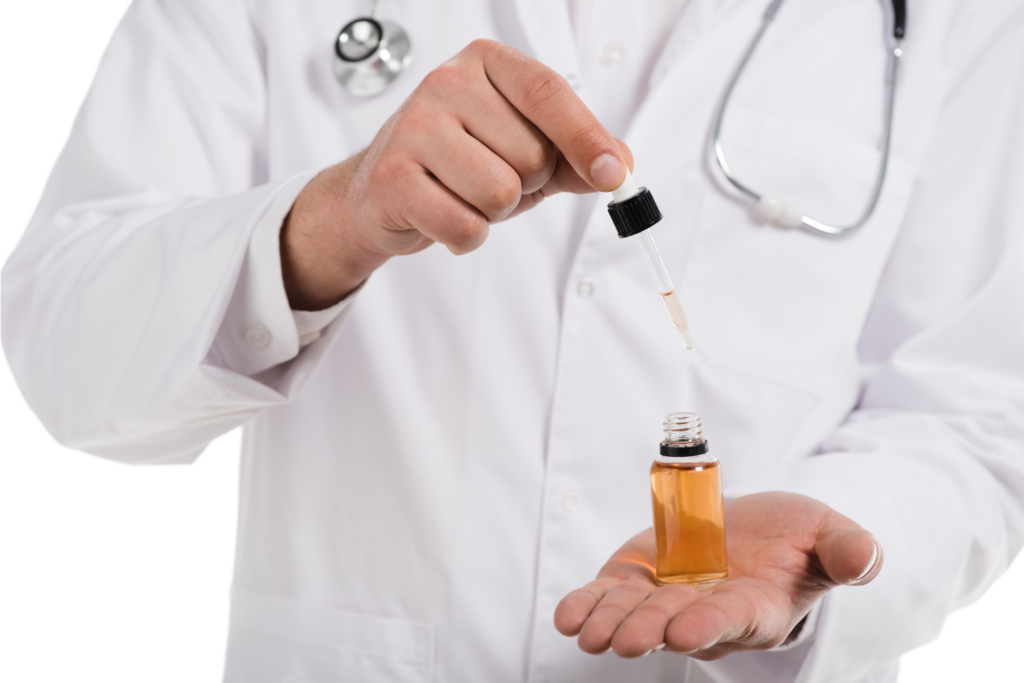
What Is CBD?
CBD, or cannabidiol, is a compound extracted from cannabis, usually hemp, to comply with federal law. It’s the second most common cannabinoid in cannabis, making up almost 40% of it.
There are many ways to take CBD, including inhalation, orally, or topically — topical application only works on the area it’s applied to. It does not cause alterations in mood or intoxication like another popular cannabinoid, delta-9 tetrahydrocannabinol (THC).
CBD has been the topic of many studies over the past few decades. It’s useful in treating anxiety, cognition, movement disorders, and pain.
In 2018, a cannabidiol drug, Epidiolex, was approved by the FDA. Epidiolex is used for the treatment of two rare epilepsy conditions. In some parts of the world, CBD combined with THC in a 1:1 combination is approved for use in symptomatic relief for adults with Multiple Sclerosis.
What Does CBD Do?
CBD interacts with the endocannabinoid system (ECS); this complex system is found throughout the body and is composed of endocannabinoids, enzymes, and cannabinoid receptors.
There are two receptors of most importance in the ECS, called CB1 and CB2. CB1 is associated with the nervous system, while CB2 is found mainly in the immune system.
THC binds directly to the CB1 and CB2 receptors. CBD, however, alters the behavior of the receptors, causing a reaction.
CBD can activate 5-HT1A/2A/3A serotonergic receptors. While it doesn’t necessarily increase serotonin levels in the brain, it may affect the chemical receptors’ response to the already available serotonin [1].
CBD is metabolized in the liver by several cytochrome P450 enzymes and acts as a competitive inhibitor for these same enzymes. It occupies sites of enzymatic activity and displaces its chemical competitors. Due to this, these enzymes of cytochrome P450 are unable to metabolize other compounds.
CBD may have a benefit over other medications used in depression. While antidepressants take a few weeks to start working, CBD can show antidepressant-like effects much sooner.
CBD does not have side effects like most antidepressants do. There are no side effects like insomnia, sexual dysfunction, or mood swings with CBD [2].
Side Effects of CBD
CBD also has some side effects, though minimal. They are:
- Potential liver damage
- Drowsiness
- Decrease in blood pressure
- Lightheadedness
Important Points To Consider About CBD
You need to know a few things about CBD that may impact how you buy and use it.
The FDA Does Not Regulate CBD
Two drugs, Epidiolex and Sativex, contain CBD and have received approval for use.
CBD and CBD products are largely unregulated and are not FDA-approved. Unfortunately, this leaves a large gap, and the quality and safety of these products are often called into question. There are many good companies, but you have to watch out for the bad ones.
Often, companies lie about the amount of CBD in the products or add chemicals to make them seem more potent.
Minimal Research
Even though many studies find CBD to be beneficial, the research is still lacking. We don’t know the full extent of its abilities and side effects yet, especially long-term.
Types of Drug Interactions With CBD
There are three different ways that CBD can interact with other drugs.
1. Agonistic Interaction (Increased Effect)
This happens when two substances have the same effects in the body due to both of them acting on the same receptors to push in the same direction.
These include drugs like:
- Antihypertensive medications — ACE inhibitors, alpha-blockers, angiotensin II receptor blockers, beta-blockers, calcium channel blockers, central agonists, and diuretics.
- Anti-anxiety medications — Benzodiazepines and barbiturates.
- Antidiabetic medications — Alpha-glucosidase inhibitors, biguanides, DPP-4 inhibitors, GLP-1 receptor agonists, meglitinides, SGLT-2 inhibitors, sulfonylureas, and insulin.
Antagonistic Interaction (Decreased Effect)
This decreases the effects of the medication.
These include medications like:
- Stimulants — Amphetamine, modafinil
- Immunomodulators — Antihistamines like carbinoxamine, desloratadine, levocetirizine
- Immunosuppressants — Azathioprine, mycophenolate cyclosporine, methotrexate
Metabolic Competition
These medications need similar enzymes to break down the drug molecules, causing both types of medications to compete against each other, leading to a slow metabolism rate for both of them. They may increase the effects or decrease the effects.
These include medications like:
- Blood Thinners — Enoxaparin, heparins, and others
- NSAIDs — Ibuprofen, naproxen, high-dose asprin
- Opiate analgesics — Morphine, codeine, hydrocodone
- Antidepressants — Trazodone, mirtazapine, vortioxetine, and vilazodone
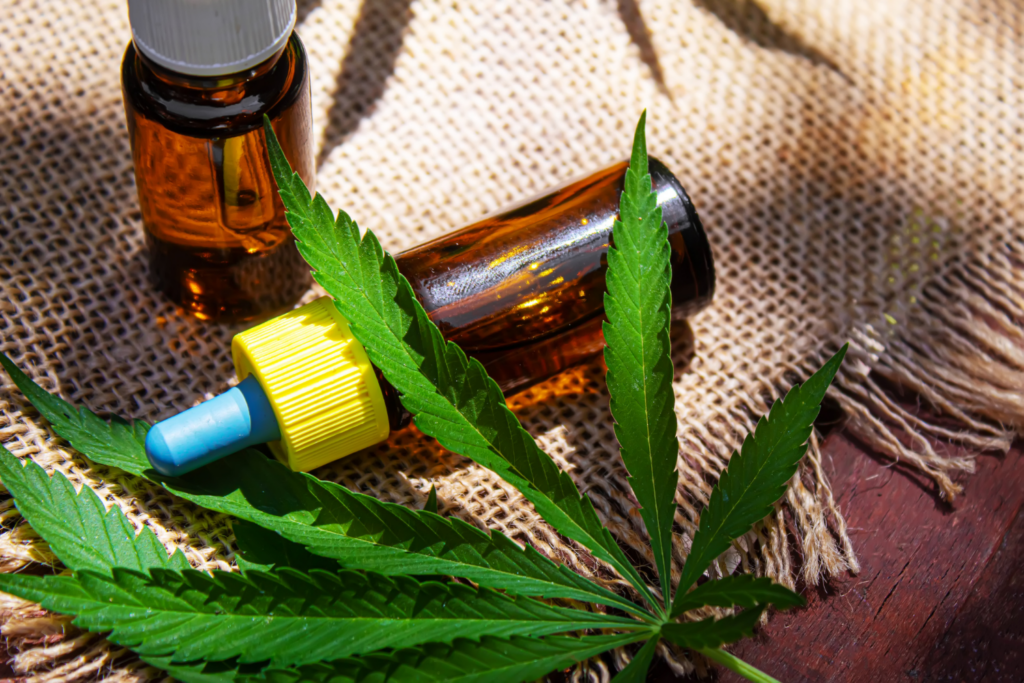
Key Takeaways: Is it Safe to Take Sertraline (Zoloft) With CBD?
While theoretically, taking sertraline with CBD could cause some serious side effects, the studies are still limited. It’s better to exercise caution and talk with your doctor before you use CBD with sertraline. If you feel any side effects on using these drugs together, seek medical attention immediately.
References
- R de Mello Schier, A., P de Oliveira Ribeiro, N., S Coutinho, D., Machado, S., Arias-Carrión, O., A Crippa, J., … & C Silva, A. (2014). Antidepressant-like and anxiolytic-like effects of cannabidiol: A chemical compound of Cannabis sativa. CNS & Neurological Disorders-Drug Targets (Formerly Current Drug Targets-CNS & Neurological Disorders), 13(6), 953-960.
- Skelley, J. W., Deas, C. M., Curren, Z., & Ennis, J. (2020). Use of cannabidiol in anxiety and anxiety-related disorders. Journal of the American Pharmacists Association, 60(1), 253-261.
Signup to our newsletter
Be the first to know about our newest arrivals and special offers!
